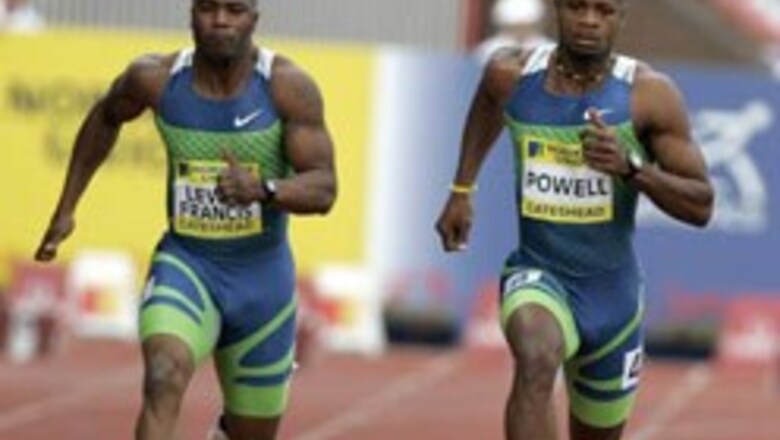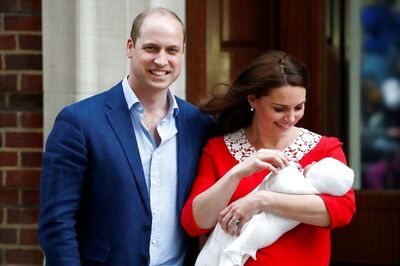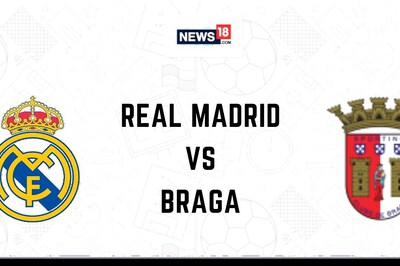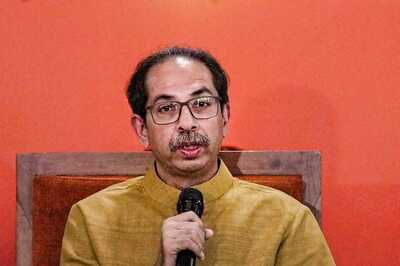
views
Hamburg: The 100 metres in 9.29 seconds? The javelin hurled 106.50 metres? The women's marathon run in two hours and six minutes?
Fantastic world records that athletes can only dream about and which the track and field experts discount as a fantasy. But are they really impossible?
In John Einmahl's view, not at all. In a study looking at extremes relating to world record in athletes, the mathematics professor at Tilburg University in the Netherlands has calculated the ultimate world records in 14 disciplines.
Einmahl and his colleague Jan Magnus have also attempted to answer how "good" current world records are, while comparing the quality of world records in different events.
Using the "probability theory of extreme values" and statistical techniques, the best performances of 1,546 male athletes and 1,024 female athletes have been examined to estimate what records are, in principle, possible now.
"This is a very serious study. The extreme-value theory in mathematics and statistics is a recognised science," Einmahl said.
"We have analysed athletics world records because sport is of social interest."
Sport is new territory for the 49-year-old Dutchman who has previously looked at extremes in relation to such subjects as share prices, the heights of Dutch dikes in order to protect against flooding or the insurance losses from natural catastrophes.
According to the professors' theories, the sprinters have got some work to do.
The men's 100m world record of 9.77 seconds held by Jamaican Asafa Powell could be improved by 48 hundreds of a second to 9.29 seconds.
In the 200m, US runner Michael Johnson's world record of 19.32 seconds could be lowered to 18.63 seconds, while the men's 110m hurdles world record of 12.88 held by Chinese runner Liu Xiang could go down by half a second, going by the extreme-value theory.
There's plenty of leeway in the men's javelin where Czech star Jan Zelezny's world record of 98.48m is some eight metres down on the achievable of 106.50m.
PAGE_BREAK
In contrast, the women's javelin distance is close to its limit, with only 80 centimetres to improve on the record of 71.70m held by Cuba's Osleidys Menendez.
Menendez leads in the quality rankings of world records, ahead of Zelezny, Johnson's 200-metres mark and Cuban Javier Sotomayor in the high jump (2.45m).
In the marathon, the study comes to the conclusion that not much more progress (only 49 seconds) can be expected in the men's event, but that eight minutes 50 seconds could chopped off the women's best mark.
Despite this British runner Paul Radcliffe's world record of two hours 15:25 sec is one of the best in terms of quality among the disciplines examined, showing that a world record "can have a high quality while it can still be much improved", the study says.
"For many athletes it will be depressing when confronted with our extreme values," Einmahl conceded.
However, an "impossible" does not exist in the mathematical theory of extreme values, even if there is room for an "incredible". To put it another way, the incredible is not impossible.
"Who would have thought that Bob Beamon could leap 8.90m on Oct 18, 1968 (in the Mexico Olympics long jump), that a person is capable of such a performance?" he said.
Beamon improved the world record in the altitude of Mexico City by 55 centimetres, a truly quantum leap that day for athletic performance.
Compared to previous world record studies, the Tilburg professors have not analysed the development of top performances over a period of time, neither have they used physiological data.
"Height, weight, age, muscle mass or talent has played no part," said Einmahl.
"Progress over time was not our method either. We are not trying to predict the world record in the year 2525."



















Comments
0 comment